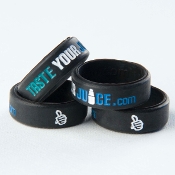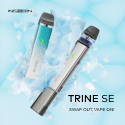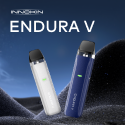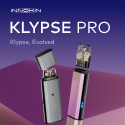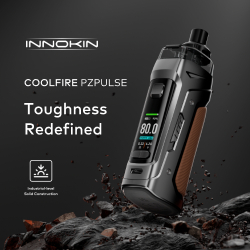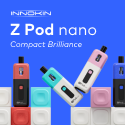Author: John Muchow
A BATTERY MOOCH POST: Cylaid 35A 2600mAh 18650 Bench Test Results…just a very overrated 25A battery
This Cylaid is an overrated cell with a useless pulse rating. At its claimed 35A continuous rating its temperature rose above the boiling point of water, reaching the dangerously high level of 111°C. This clearly shows the claimed 35A continuous current rating is ridiculous.
While this cell has the claimed 35A rating in fine print on the wrap it has an even more useless 50A “max pulse discharge” rating on the wrap too. It also features “50A” in a larger font which many people will use as the cell’s rating when shopping or when a vendor displays it on their web site. For these reasons I feel the large “50A” rating, or any “pulse” rating, is misleading and shouldn’t be used.
This Cylaid matches the Sony VTC5A in appearance and in performance.
I am rating this Cylaid at 25A and 2600mAh.
My thanks to Cylaid for donating the two cells for testing! (https://cylaid18650.en.alibaba.com)
Test results, discharge graph, photos: https://www.e-cigarette-forum.com/forum/threads/cylaid-35a-2600mah-18650-bench-test-results-just-a-very-overrated-25a-battery.800717/
All my test results to date: https://www.e-cigarette-forum.com/forum/blog-entry/list-of-battery-tests.7436/
A BATTERY MOOCH POST: Cylaid 25A 2200mAh 18650 Bench Test Results…an accurately rated 25A battery
Bottom Line: This Cylaid is a true 25A cell that performs well and appears to be a Sony VTC rewrap.
While this cell has the 25A continuous current rating in small print on the wrap it has a useless 40A “max pulse discharge” rating on the wrap too. It also features “40A” in a larger font which many people will use as the cell’s rating when shopping or when a vendor displays it on their web site. For these reasons I feel the large “40A” rating, or any “pulse” rating, is misleading and shouldn’t be used.
It has the distinct Sony VTC top contact structure but uses a venting disk that doesn’t match any VTC venting disk I’ve seen before. This Cylaid cell doesn’t match the performance of any VTC cell I’ve tested before either.It tests out better than the VTC4 but worse than the VTC5A. I don’t know which cell they might be rewrapping.
I am rating this Cylaid at 25A and 2200mAh.
My thanks to Cylaid for donating the two cells for testing! (https://cylaid18650.en.alibaba.com)
Test results, discharge graph, photos: https://www.e-cigarette-forum.com/forum/threads/cylaid-25a-2200mah-18650-bench-test-results-an-accurately-rated-25a-battery.800589/
All my test results to date: https://www.e-cigarette-forum.com/forum/blog-entry/list-of-battery-tests.7436/
A BATTERY MOOCH POST: Samsung 25R (6M Variant) 18650 Bench Test Results…25R5 is slightly better
This 25R6M is a true 20A cell that performs well but not quite as well as the 25R5 variant. The “M” indicates that this cell was made in their Malaysia factory.
I don’t know if all of the 25R6M’s are like this but both of the ones I tested performed the same. They have the same capacity as the 25R5 but run at a lower voltage, i.e., they don’t hit quite as hard. Tyhe 25R6M does run a bit cooler than the 25R5 though.
I am rating the 25R6M at 20A and 2500mAh.
My thanks to IMRBatteries for donating the two cells for testing (www.imrbatteries.com)!
Test results, discharge graph, photos: https://www.e-cigarette-forum.com/forum/threads/samsung-25r-6m-variant-18650-bench-test-results-25r5-is-slightly-better.799799/
All my test results to date: https://www.e-cigarette-forum.com/forum/blog-entry/list-of-battery-tests.7436/
A BATTERY MOOCH POST: Ampking 30A 3000mAh 20700 Bench Test Results…accurately rated, a good 20700 battery
Bottom Line: This is an accurately rated 20700 cell (20mm diameter x 70mm length) that performs well but not quite as well as the Sanyo NCR20700A.
This Ampking uses a paper top ring insulator that should not be exposed to juice or otherwise it could swell and soften, possibly increasing the risk of the insulator being damaged when put into or removed from a device or charger.
I am rating this Ampking at 30A and 3000mAh.
My thanks to Ampking for donating the two cells for testing (www.ampking.com)!
I don’t know when it will be available, or from which vendors, but I will post updates as I find out.
Test results, discharge graph, photos: https://www.e-cigarette-forum.com/forum/threads/ampking-30a-3000mah-20700-bench-test-results-accurately-rated-a-good-20700-battery.799535/
All my test results to date: https://www.e-cigarette-forum.com/forum/blog-entry/list-of-battery-tests.7436/
A BATTERY MOOCH POST – The iJoy 40A 3000mAh 20700 Bench Test Results…a good 30A battery
21700Bottom Line: This is an overrated 20700 cell (20mm diameter x 70mm length) that performs well but not quite as well as the Sanyo NCR20700A. Its appearance is similar to the Panasonic/Tesla cell, with its 5-leg top contact, but I cannot confirm that this is indeed the Panasonic cell. There are differences in the top crimp seal and tooling marks.
This iJoy uses a paper top ring insulator that should not be exposed to juice or otherwise it could swell and soften, possibly increasing the risk of the insulator being damaged when put into or removed from a device or charger.
I am rating this iJoy at 30A and 3000mAh.
My thanks to Evolution Vaping for donating the two cells for testing (https://www.evolutionvaping.co.uk/ijoy-20700-40amp-battery.html)!
Test results, discharge graph, photos: https://www.e-cigarette-forum.com/forum/threads/ijoy-40a-3000mah-20700-bench-test-results-overrated-but-a-good-30a-battery.798323/
All my test results to date: https://www.e-cigarette-forum.com/forum/blog-entry/list-of-battery-tests.7436/
A BATTERY MOOCH POST: Testing the Samsung INR21700-30T soon!
A BATTERY MOOCH POST: New battery charging ratings and recommendations table
I’ve created a table with the manufacturer’s standard and rapid/fast battery charge current ratings along with my recommendations for a charge rate that will help ensure a long life.
Charging at the Standard Rate is a good balance between charging speed and overall battery life.
https://www.e-cigarette-forum.com/forum/blog-entry/battery-charge-current-ratings-table.7823/
A BATTERY MOOCH POST: Energy Vap 20A 3000mAh 18650 Bench Retest Results… only a 2500mAh battery!
Bottom Line: I regrettably gave this company the benefit of the doubt when they said they had adjusted their ratings but it’s clear now that Energy Vap insists on remaining one of the many companies that grossly exaggerates the ratings of their batteries.
When first released, this cell was rated 35A and 3000mAh. This was clearly ridiculous. Their web site still shows it as a 35A/3000mAh battery: https://imgur.com/a/rgezW (Imgur screenshot to avoid giving the site any traffic). They informed me that they were redoing the packaging and asked me to retest the cell. Their Facebook page has photos of the new “20A/35A” packaging, though with a useless 35A pulse rating.
I agreed and then found out, via the new testing and an earlier mistake of mine, that these are not 3000mAh cells. They are only 20A/2500mAh cells, the same ones I tested earlier that they rated at 35A/3000mAh. They appear to be rewrapped Samsung 25R6M’s (latest generation 25R but made in Malaysia), a poorer performer than the 25R5 in my testing (to be posted soon).
Here’s more info about my previous testing error:
Facebook:
https://www.facebook.com/batterymooch/posts/1878602085762702:0
ECR Subreddit:
https://www.reddit.com/r/electronic_cigarette/comments/644a4e/an_apology_from_mooch_about_energy_vap_battery/
I am rating this Energy Vap cell at 20A and 2500mAh.
Always Remember:
– There is no 18650 that can have a factory/manufacturer rating over 30A.
– There is no 3000mAh 18650 that can have a rating over 20A.
– There is no 3100mAh-3600mAh 18650 that can have a rating over 10A.
– There is no 18650 with a capacity rating over 3600mAh.
Test results, discharge graph, photos: https://www.e-cigarette-forum.com/forum/threads/energy-vap-20a-3000mah-18650-bench-retest-results-only-a-2500mah-battery.797265/#post-19420315
All my test results to date: https://www.e-cigarette-forum.com/forum/blog-entry/list-of-battery-tests.7436/
A BATTERY MOOCH POST: Docan Black 35A 3000mAh 18650 Bench Test Results…a hugely overrated rewrap
Bottom Line: This Docan is incredibly overrated. At 30A continuous, 5A below this cell’s rating, it became hot enough to boil water.
This Docan’s appearance is identical to the Samsung 30Q. It’s discharge curve is the same as the 30Q’s but this cell performs a tiny bit worse.
I am rating this Docan at 15A and 3000mAh. The 18650 ratings table has been updated to include this cell
Always Remember:
– There is no 18650 that can have a factory/manufacturer rating over 30A.
– There is no 3000mAh 18650 that can have a rating over 20A.
– There is no 3100mAh-3600mAh 18650 that can have a rating over 10A.
– There is no 18650 with a capacity rating over 3600mAh.
Test results, discharge graph, photos: https://www.e-cigarette-forum.com/forum/threads/docan-black-35a-3000mah-18650-bench-test-results-a-hugely-overrated-rewrap.796951/
All my test results to date: https://www.e-cigarette-forum.com/forum/blog-entry/list-of-battery-tests.7436/
A BATTERY MOOCH POST: Do we need to “break-in” our LiPo’s?
It’s widely believed that the LiPo battery packs used in DNA200/250 and custom box mods need to be charged/discharged several times before they reach their peak performance.
Is this true?
To find out I took three new 3S packs and balanced charged them at 5A on an iCharger106B+ to 12.60V followed by a discharge to 9.0V at 20A constant-current. I did this a total of five times for each pack with a 60 second rest between each step. A lot of effort was made to ensure that the pack temperatures were consistent from cycle to cycle.
As you can see there was no increase in the capacity of the pack or an increase in its voltage while being discharged (which would indicate a decrease in its internal resistance).
For two of the three packs I measured the internal resistance before and after the tests were done:
Turnigy 25C-35C 2200mAh before = 18.3 mOhms
Turnigy 25C-35C 2200mAh after = 18.5 mOhms
MaxAmps 100C 2250mAh before = 21.9 mOhms
MaxAmps 100C 2250mAh after = 22.8 mOhms
The break-in cycles didn’t lower the internal resistance of the packs. In fact, they did exactly what any use of the pack does…ages the pack and increases its internal resistance.
The break-in cycling did not improve the performance of any of the three packs. It only wasted five of the limited number of cycles available before the packs would need to be replaced.
I also did five break-in cycles for each of the ten 1800mAh 3S LiPo packs I recently tested. Those break in cycles were done at some pack assembler’s typical recommended levels, 1C charge and 2C-3C discharge. There was no increase in performance between cycle 1 and cycle 5 for any of the packs.
Will this be the case for every LiPo? I don’t know.
There might be some LiPo’s that were not fully formed (initialized) at the factory in order to save money. Their performance would increase during the first few cycles. There also might be some that were stored for a long time before being used. This can cause the thickening of an important chemical divider (the SEI layer) between certain parts of the battery, increasing its internal resistance. Cycling the battery can reduce its thickness and restore some performance.
I know that many in the R/C community feel strongly that this cycling is needed but the tests described above and my recent testing of ten different 1800mAh 3S LiPo packs showed no increase in performance after being cycled a few times.
I have an idea why some might feel they are seeing an improvement in performance though.
LiPo cells, which use lithium-cobalt chemistry, show a very small change in voltage for a big change in capacity during most of the discharge compared to other Li-Ion chemistries. This “flat discharge curve” is one of the big benefits of using LiPo’s.
But this flat discharge curve also means that just a small change in the voltage of the battery can result in a big change in the capacity the battery delivers to cutoff voltages above 3.2V or so. If the pack is warm its internal resistance drops and the voltage the pack runs at is higher. This allows the pack to run for a lot longer before dropping to the cutoff voltage.
Since the outer wraps of a LiPo pack are very effective heat insulators the internal temperature of a LiPo pack can be a lot higher than the external temperature. It can seem to be only a bit above room temperature but actually be much warmer. Unless the pack is allowed to sit for at least an hour after charging, two hours or longer for larger packs, the internal resistance could be lower than when the pack was first used in the tests.
This would cause the packs to run at a higher voltage, making it seem that its performance had improved with cycling. But the improved performance was really only due to the pack being warm.
I am not saying that everyone who cycles their packs and says they see an improvement is wrong!
I am not saying that no LiPo packs respond to break-in cycling!
I am merely saying that in my testing of thirteen different packs I see no sign of break-in cycling having any effect on performance. It shouldn’t though. Properly formed packs, not stored for months and months, should not need any sort of break-in to reach their best performance levels.
I’d be interested in hearing your experiences regarding breaking in LiPo packs, especially if you took measures to make sure internal pack temperatures were consistent for each cycle.
Thanks!
Here are the three discharge graphs: https://imgur.com/a/G0DSM






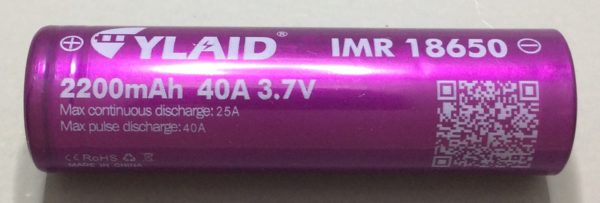
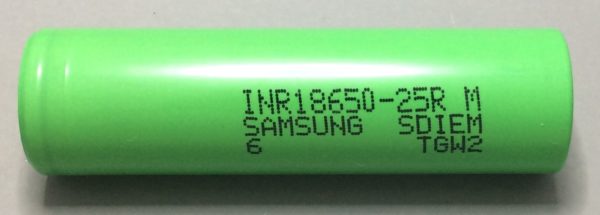

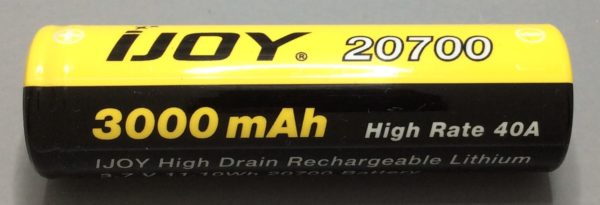
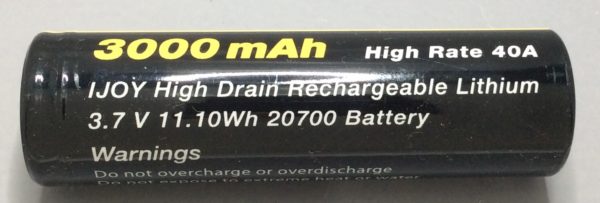
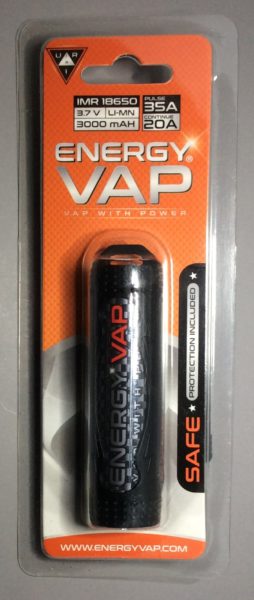
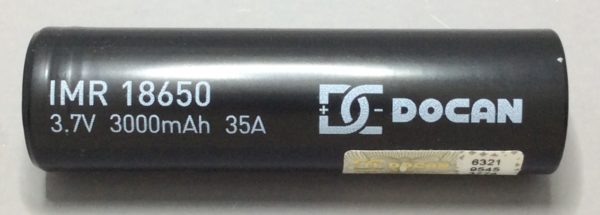









 Store
Store
